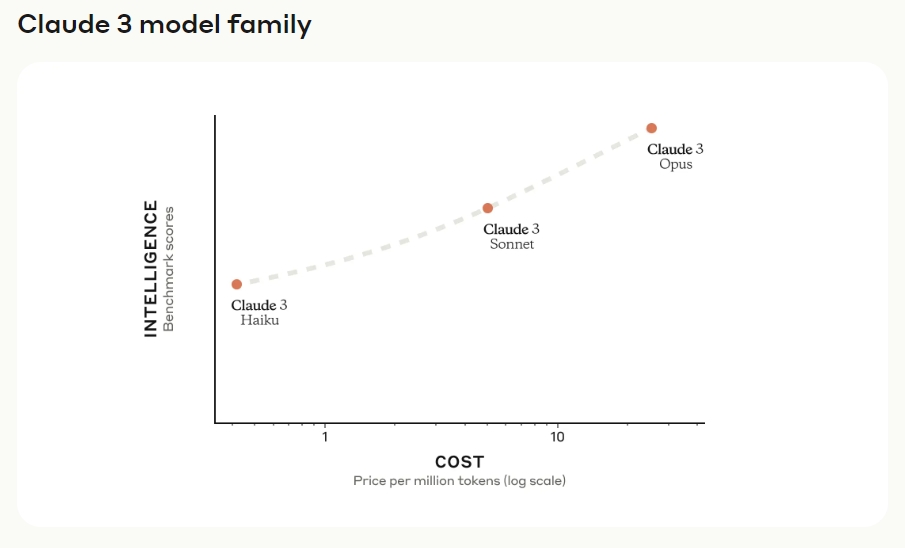New Large Models Claude 3 Join in AI Race

Claude?3?model?family.?(PHOTO:?SCREENSHOT?FROM?ANTHROPIC?WEBSITE)
By?Staff?Reporters
In early March, Anthropic, an American AI startup formed by some researchers who quit OpenAI, revealed a suite of AI models known as the Claude 3 model family. The family includes three state-of-the-art models in ascending order of capability: Claude 3 Haiku, Claude 3 Sonnet, and Claude 3 Opus.
"This is the Rolls-Royce of models, at least at this point," Anthropic CEO Dario Amodei said in an interview, Reuters reported.
This is the first time that Anthropic has offered multimodal support. The three models can power live customer chats, auto-completions, and data extraction tasks. They have sophisticated vision capabilities on par with other leading models. Users can upload photos, charts, graphs, technical diagrams and other types of unstructured data for analysis and answers.
The most intelligent model, Opus, outperforms its rival models GPT-4 from OpenAI and Gemini 1.0 Ultra from Google on various benchmark exams for AI systems, such as undergraduate-level expert knowledge, graduate-level expert reasoning, and basic mathematics, the company said. It demonstrates a near-human degree of comprehension and fluency in handling intricate tasks, pushing the boundaries of general intelligence.
Anthropic said Claude 3 can summarize up to about 150,000 words, approximately the size of a book like Harry Potter and the Deathly Hallows, CNBC reported. Its previous version could summarize only about 75,000 words. Users can input large data sets and ask for summaries in the form of a memo, letter or story.
By contrast, ChatGPT, when it came out in 2022, could can cope with only about 3,000 words.






